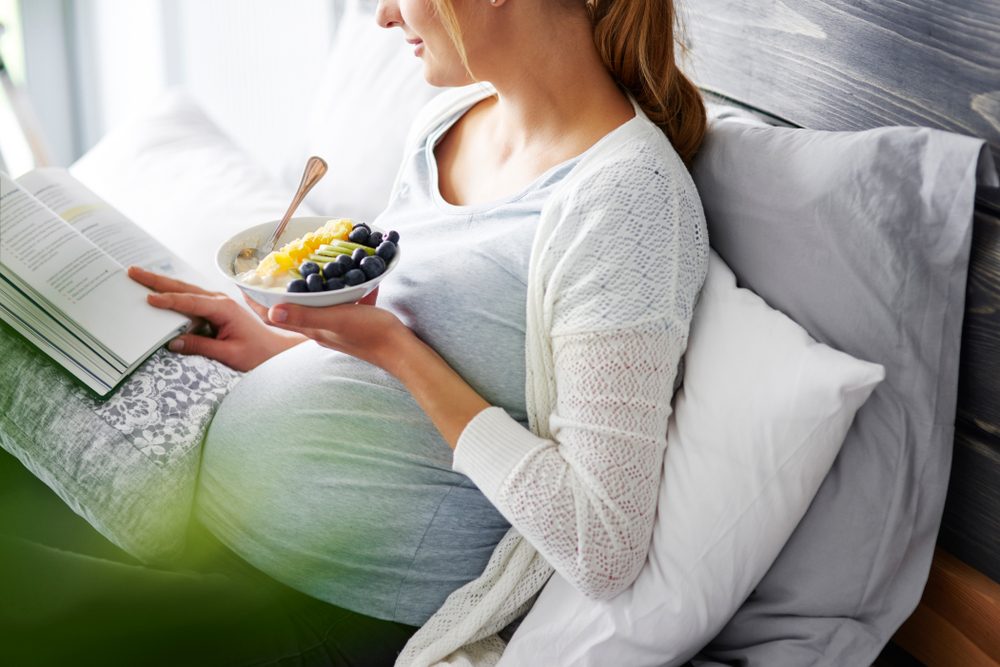
Most pregnant women take their health very seriously. They work hard to make sure they’re eating well and staying active to help grow the healthiest human possible and avoid any issues that could impact their pregnancy. One of those issues is gestational diabetes. The CDC reports that anywhere between 2% and 10% of those tested will develop gestational diabetes during their pregnancy.
While eating a balanced diet is a big factor and a common pregnancy tip in preventing gestational diabetes, a new study published in the American Journal of Obstetrics and Gynecology Maternal Fetal Medicine suggests that prolonged light exposure at night can also increase a pregnant person’s chance of developing this potentially harmful condition.
Turn off the lights earlier
The study showed that of the 741 women involved in the study, those who developed gestational diabetes had a greater exposure to light in the 3 hours before bed than those who didn’t. “Our study suggests that light exposure before bedtime may be an under-recognized yet easily modifiable risk factor of gestational diabetes,” Dr. Minjee Kim, lead author of the study out of Northwestern University, said in a statement.

The risks
The study also notes that there has been a rise in the occurrence of gestational diabetes over the last few years. In 2020, gestational diabetes was present in 7.8% of births in the U.S. “It’s alarming,” Kim said. “Gestational diabetes is known to increase obstetric complications, and the mother’s risk of diabetes, heart disease, and dementia. The offspring also are more likely to have obesity and hypertension as they grow up.” Now, it seems that in addition to eating well and staying active, simply reducing your exposure to light before bed can help reduce the risk of gestational diabetes.

Potential sources
It can be tempting to surf the internet on your phone or laptop or watch some TV before bed, or maybe even read a bit before turning in. Unfortunately, any of this can expose you to bright lights which, according to this study, can be harmful. Dimming the lights while doing this may help mitigate any risks. “We don’t think about the potential harm of keeping the environment bright from the moment we wake up until we go to bed,” stated Kim. “But it should be pretty dim for several hours before we go to bed. We probably don’t need that much light for whatever we do routinely in the evening.”
For many women, those precious hours before bed are the only time during the day they can relax, and that often involves watching a favorite show or surfing online. Kim suggested not using electronics for 3 hours before bed, but if that isn’t realistic, try keeping the lights dimmed. “Try to reduce whatever light is in your environment in those 3 hours before you go to bed,” Kim said. “It’s best not to use your computer or phone during this period. But if you have to use them, keep the screens as dim as possible.”



